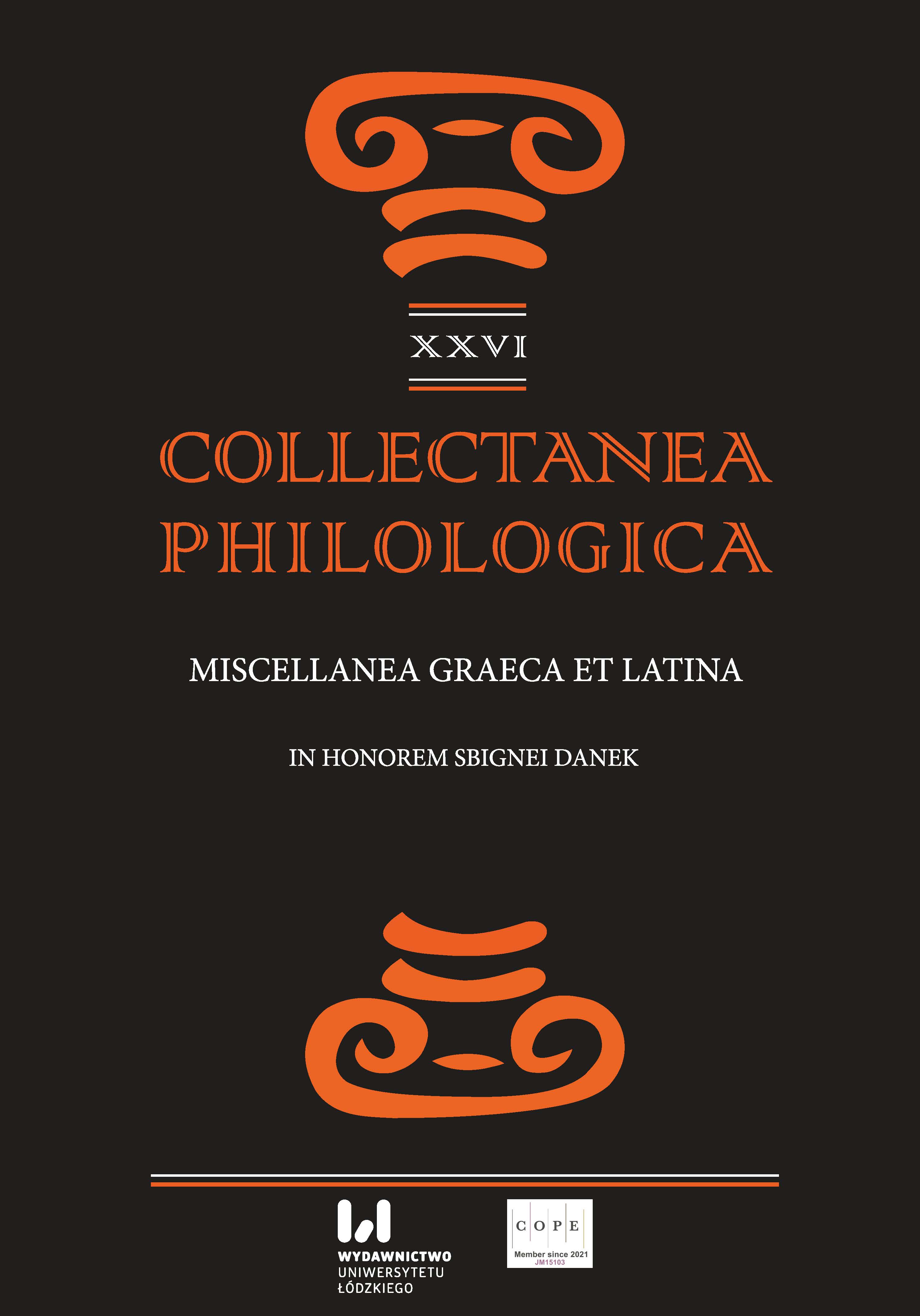Levant et carmina curas – o terapeutycznym walorze poezji w Eklodze IV Nemezjana
Levant et carmina curas – Therapeutic Value of Poetry in the IV Eclogue by Nemesianus
Author(s): Anna KluczSubject(s): History, Language studies, Language and Literature Studies, Studies of Literature, Ancient World, Latvian Literature
Published by: Wydawnictwo Uniwersytetu Łódzkiego
Keywords: Umberto Eco; Prague Cemetery; Nemesianus’ Eclogue IV; poetry; therapy; suffering; intertextual collage
Summary/Abstract: The article presents an episode related to the erroneous attribution of the phrase carmina non dant panem to Nemesianus, a Carthaginian poet living in the 3rd century AD, who did not enjoy the due authority among researchers. Later, Nemesianus’ Eclogue IV, which – as a literary space – is an example of an original intertextual collage, was analysed. The analysis of the last Eclogue written by Carthaginian poet shows how he weaved this work out of the poetic tradition concerning the truth about the transience of youthful beauty. Both the Latin sentence carmina dant panem, quoted in Umberto Eco’s novel, and versus intercalaris, quoted ten times in the Nemesianus’ Eclogue, make us think about the most desirable value that is expected from poetry, both from the point of view of the author and the recipient. Eclogue IV reveals the author’s melancholy poetic reverie about the transience of the things of this world, and also shows that the poet does not listen to his predecessors to speak in the same way as them, but he listens to their voices in order to better hear and articulate his own separate voice, as it were a tribute to poetry, which is therapy for the creator.* Działania badawcze wsparte ze środków przyznanych w ramach programu Inicjatywa Doskonałości Badawczej Uniwersytetu Śląskiego w Katowicach.
Journal: Collectanea Philologica
- Issue Year: XXVI/2023
- Issue No: 1
- Page Range: 151-162
- Page Count: 12
- Language: Polish

